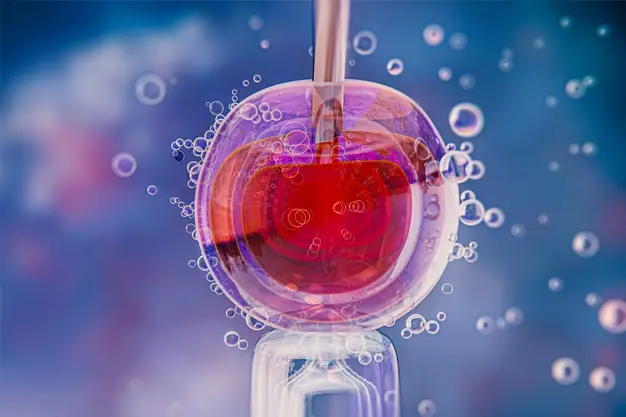 11 Link Road, Lajpat Nagar,
Jalandhar City
11 Link Road, Lajpat Nagar,
Jalandhar City
Intracytoplasmic Sperm Injection (ICSI) is a cutting-edge assisted reproductive technique that has revolutionized the treatment of male infertility and certain other fertility challenges. ICSI is a method that helps couples who are having trouble conceiving because of male problems such low sperm count, poor motility, or aberrant morphology. A single sperm is carefully inserted directly into an egg. This accurate microinjection technique is a useful tool in the field of in vitro fertilization (IVF), as it greatly increases the odds of fertilization.
Many couples who are attempting to conceive now have hope thanks to ICSI, but the process is not guaranteed to be successful and should only be explored after speaking with a fertility specialist who can tailor it to each patient's needs.Our dedicated specialists work closely with each individual or couple to tailor this advanced treatment to their unique needs, offering personalized care and support along the way. Your journey to building a family starts here, and we're here to help you every step of the way.


ICSI is especially beneficial for couples in which one of the partners has aberrant sperm morphology, low sperm count, or poor sperm motility.

Because ICSI inserts a sperm directly into the egg, avoiding several obstacles that could prevent fertilization, it has demonstrated higher fertilization rates as compared to standard IVF procedures.

It's helpful in circumstances when the sperm might find it challenging to naturally penetrate the egg. By manually inserting a sperm into the egg, ICSI can get around this obstacle and facilitate fertilization.

ICSI can help couples become parents to biological children even if they were not able to conceive using conventional methods.

Preimplantation genetic testing (PGT) can be used in conjunction with (ICSI) to detect genetic problems in embryos prior to implantation, thereby lowering the possibility that the offspring would be born with a genetic condition.

In addition to male infertility, ICSI can be utilized in situations where traditional IVF may not have worked because of problems on the female end, such as past miscarriages, advanced maternal age, or concerns with the eggs.

This accuracy can be useful in a number of situations, guaranteeing conception when it might otherwise be challenging.
To promote the creation of numerous mature eggs, the female partner usually receives ovarian stimulation with fertility drugs prior to ICSI. By doing this, the likelihood of a successful fertilization and the formation of viable embryos are increased.
When the eggs are mature, a simple surgical procedure called transvaginal oocyte extraction is used to remove them from the woman's ovaries under anesthesia.
The male spouse donates a sample of semen on the same day that the eggs are retrieved. Testicular sperm extraction (TESE) or epididymal sperm aspiration (TESA) may be used to retrieve a sperm sample in certain situations where there are significant male infertility problems, such as obstructive azoospermia.
After being carefully recovered, the eggs are cleaned to get rid of any surrounding cells. It is simpler to see and inject a single sperm into each egg with this preparation.
A tiny, hollow needle is used to individually select and immobilize a single sperm under the guidance of a sophisticated microscope and micromanipulation apparatus. Subsequently, the needle is cautiously injected into the cytoplasm of the egg by passing through its outer membrane, or zona pellucida. The egg is directly injected with the sperm.
Following the injection of sperm, the eggs are incubated and checked for fertilization. Fertilization may usually be verified 16–20 hours following the ICSI process.
Throughout the culture phase, the quality and development of the embryos are observed. The intention is to successfully conceive a child by transferring the highest-quality embryos into the woman's uterus.
Two to five days following the ICSI treatment, the woman's uterus receives the selected embryos. A lot of variables, including as the woman's age and medical background, affect how many embryos are transferred. High-quality embryos that are not transplanted but remain viable can be cryopreserved for later use.
Hormonal support, such as progesterone, may be given to support the uterine lining and promote embryo implantation following the embryo transfer.
A blood test is performed to ascertain whether pregnancy has taken place 10 to 14 days following the embryo transfer.
Aarti Hospital 2026. All rights reserved.